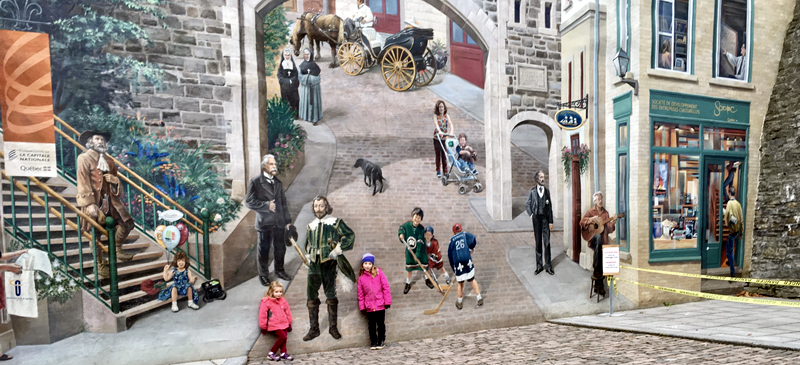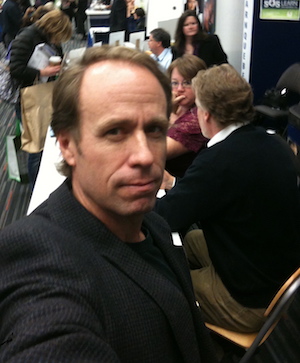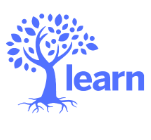Secondary History

Welcome to Secondary History at LEARN.
Browse the sections below for access to our Teacher and Student Resources and to various opportunities for Professional Development. Remember to also visit our Elementary Section and its vast Societies & Territories site, and our Cartograf mapping tool.
Secondary Cycle 1 Teachers. There's a page for you here!
Secondary 3 and 4 teachers. You should now access all our resources via the new History of Québec and Canada Secondary History Student site. Note teacher resources at the bottom of each page and in the top menus. A ⚒️ Student Toolkit Area is also available. (Temporarily, the Secondary 3/4 History Resources page is still available here.)
Recently Curated Resources for the Social Sciences!
Throughout the year we curate interesting resources that are useful (and distracting!) for the various Social Sciences subjects.
Check out our Wakelet of resources by clicking here or browsing some of the items below!
Teaching and Learning Tools (Cycle 1, Cycle 2, HQC, etc.)
Secondary 3/4 History of Quebec & Canada
LEARN-RECITUS document collections, teaching strategies and evaluations are available.
Update: We have now completed the move of our materials to the new Student History site.
Note that teachers materials including any available evaluations are also available on that same site. Look for them at the bottom of each section and in teachers menus at the top.
For more information and some direct links to updated topics in 2022, the Secondary 3/4 History Resources page is still available here.
History Cycle 1
We now have a separate page for our History Cycle 1 resources. Here you will find document packages, learning situations, and Cartograf sample maps. Go to page![]()
Cycle 1 Geography
Note that Geography tasks, docs and scenarios are located in a different section. Go to page![]()
Black History Resources
Not just about Black History Month! The threads of Black history in Canada are varied, often lost in the margins. LEARN consultants & partner teachers are finding useful resources to help you to learn about Black History in Canada, but also to expand upon the QEP program contents. Go to page![]()
Graphic Organizer Store House
Visit our central storehouse for various graphic organizers, many which were developed for the myriad learning scenarios and document packages elsewhere on LEARN. For convenience, we have gathered them together, and to loosely organize them around various Historical Thinking concepts, their guideposts document, and the Quebec programs' Intellectual Operations. Go to page![]()
Evaluation Strategies and Tools
Tools and strategies to help teachers use the evaluation frameworks, monitor skills particular to the social sciences, and develop some best practices for exam situations. Note that this is where you will also find the LEARN I.O. icons and RECITUS Badges and Guides! Go to page![]()
Feature: Social Justice Competencies
Lisa K. Taylor's strategies and resources (icons too!) to support curricula that frame and infuse students learning through a perspective of social justice and the active transformation of all forms of discrimination. Go to site![]()
Cartograf - A LEARN-RECIT Online Mapping Tool
Cartograf is an open-source, interactive web-based mapping and drawing application. It allows students and teachers to create and share maps, collect and analyze images, and work collaboratively on class projects! Go to site![]()
Social Sciences How-Tos
Prepare for that history exam
Note: The older Quebec, titled History & Citizenship, no longer exists! That being said ... many of the exam-taking strategies mentioned in this How-To remain true!
Historical Essay: What is it?
A history essay starts with an argument or position you first form in your thesis statement
Use Intellectual Operations
Talk about your passion by using Intellectual Operations!
How to interpret a picture?
Interpreting pictures is an essential technique in the social sciences. Pictures can be either photographs, paintings, drawings, caricatures, etc.
Make a Geographic Sketch
A Geographic Sketch can be used in any subject, to deconstruct the "reality" that is represented in a landscape or in a photograph of that landscape.
Professional Learning in Social Sciences
UDL in a Social Sciences Context:
Resources and Challenges in a Digital Age

Thinking about how you might adjust your History content and practices for all learning styles and experiences? LEARN online resources, in line with the secondary and new adult education history courses, can help you engage your students, explore, use and also interpret events for a variety of situations. Recently I shared a presentation on new templates structured around UDL with some teachers at the ACE Online summit. A video presentation on the First part on Engage is available at https://youtu.be/p5uS6IxKjfk
Social Sciences Online and in a Digital Age
Follow along as new learning scenario examples are added throughout the year. You will find tips, tricks and tools to help you teach online and in a digital age, using LEARN’s various resources, in response to the QEP program's approaches and according to an inquiry learning model. Visit the Secondary version ![]() Visit the Elementary Version
Visit the Elementary Version ![]() (Note too that in 2020 Paul Rombough also presented these strategies in an information online session available here.)
(Note too that in 2020 Paul Rombough also presented these strategies in an information online session available here.)
LEARN Blog entries for Social Sciences teachers
The LEARN blog is full of fascinating articles, all of which can contribute to your development as a teacher... and they are fun to read! Here are a few especially for us Social Sciences folk:
- Learning in Place: Working towards a local history learning toolkit Go to page

- Native-Land.ca - First Stop on a Journey Through Territory & Time Go to page

- Teachers as Cultural Facilitators in the Social Sciences Go to page

- Beginners No More: Social Sciences Online in a Digital Age Go to page

- Podcasts for Professional Development Go to page

- Feedback Street: Formative Assessment in History. Go to page

- Flipped History: A new approach for a new curriculum. Go to page

- History of Quebec and Canada – Planning for a new curriculum. Go to page

- Rapping Across the Curriculum. Go to page

- A Time and a Place for Elsewhere: The Role of Context... Go to page

- Geolocalize it: The global context of everything. Go to page

- iPadding… upstream! How do you manage it? Go to page

- 3 a.m. blogging, and why social sciences should be social, & public! Go to page

- Cartograf: Taking time for power mapping. Go to page

- Imagining a more meaningful and contributive future for education. Go to page

- History, reality…. and parties. Go to page

- Life stories in the classroom, and beyond! Go to page

Media and Podcasts in Social Sciences
After posting the excellent blog post by Matt Russell on Podcasts for Professional Development on the LEARN main blog, we started up a section dedicated to online media for PD for the Social Sciences teacher. Go to page![]()
Learning Communities & Professional Associations
Various associations and groups allow SocSci teachers to communicate and share, and to develop as professional learners. Here is a list of few key groups:
- Secondary 3 History Professional Community
Commununauté Histoire du Québec et du Canada. Go to site
- Quebec Association of Geography Teachers and Global Educators Go to site

- L'Association Québécoise pour la didactique de l'histoire-géographie. Go to site

- Association québécoise pour l’enseignement en univers social. Go to site

Visit and join their Facebook page and group too! Go to site
- Société des professeurs d'histoire du Québec. Go to site

- Le groupe des responsables de l'univers social. Go to site

Our Presentation on Historical Thinking (Matt R and Paul R)
Matt R. (WQSB) and I (Paul R from LEARN) presented on HIstorical Thinking concepts and strategies at LCEEQ a few years back. Here are a few ideas and resources we presented:
- Key links we mentioned:
- Main Historical Thinking Site on Historical Thinking.ca. And to order the book The Big Six
- The Historical Thinking concepts and specifically their guideposts document
- Our Google Slide documents
- Our Powerpoint temporarily available here
- Historical Event cards created with screenshots from Canadian Encyclopedia timelines
- Graphic Organizers:
- (Remarkable and Reveal) Single page and Huge Electronic versions for online collaboration are available below and in main-page Graphic Organizers section for Situate in Time and Space (Long version contains link to event cards)
- Consequences Placemat for Degree of Influence (and similar for Relevance). Available below and in main-page Graphic Organizers section for Cause and Consequence
- Historical Collection and Consequence Cards: Historical Collection #26 on American Revolution consequences. Including consequence cards to print (Note: Many other doc. collections via History of Quebec & Canada and the Communauté)
- A few video suggestions:
- What is Historical Thinking: for Historical Thinking skills, especially Evidence and Perspectives by @teachinghistory https://www.youtube.com/watch?v=mSJLmWnxrPg … Many of our "Intellectual Operations" involved. Good (U.S. History) examples
- The Importance of studying History: Historical Thinking Concepts overview and notion of a Growth Mindset, looking in the future. https://www.youtube.com/watch?v=iehEwDvwTfg
MEQ (Previously MEES) Program Documents - Secondary
Below you will find various Ministry of Education program and evaluation documents for the Secondary Social Sciences domain. (Contact Paul R. if you find broken links!)
Quebec Secondary Programs in Social Sciences
The QEP program documents describe course aims, competencies to develop, and course content.
Cycle 1 History and Citizenship Education Download![]()
Cycle 1 Geography Program Go to site![]() Download
Download![]()
Cycle 2 History of Quebec and Canada Sec. 3 & 4 program Download![]()
Cycle 2 History of the 20th Century Download![]()
Cycle 2 Cultural Geography Download![]()
Cycle 2 Financial Education Program Download![]()
Cycle 2 Contemporary World Go to site![]() (Or view PDFs for Four credits
(Or view PDFs for Four credits![]() Two credits
Two credits![]()
Note that the Ministry (MEES) Programs of Study page, where you will find these "General Education" Secondary School Programs and older programs too, is now online here: Go to site![]()
Progression/Precision of Learning documents
Cycle 1 History & Citizenship Go to site![]()
Cycle 1 Geography Go to site![]()
Cycle 2 Contemporary world Go to site![]() (Or view PDF's for Four credits or Two credits)
(Or view PDF's for Four credits or Two credits)
History of Quebec & Canada. (See instead "knowledge" within the program Download![]() )
)
Evaluation Frameworks
Below are links to the individual evaluation frameworks. You can also visit the main MEES site and browse by subject to review them Go to site![]()
Cycle 1 and 2 - History & Citizenship Education Download![]()
Cycle 2 (New) History of Québec and Canada program Download![]()
(Older) History & Citizenship Education framework Download![]()
Cycle 1 Geography framework Go to site![]() (Or Download
(Or Download![]() )
)
Contemporary World online version Go to site![]() (Or Download
(Or Download![]() )
)
Financial Education Go to site![]() (Or Download
(Or Download![]() )
)
BAMD: MEES approved books site
Bureau d'approbation du matériel didactique
MEES sample "Document files" from training sessions
1608 and 1760 - Document File: Cities in Canada
1840-1896 - Document File: Socio-cultural expression
1896 to 1945 - Document File: Education and technical training
1896-present - Document File: Challenging capitalism
1945-present - Document file: Language issue
1980-present - Document File: Information Era
Origins to present - Document File: Inuit nation
Contacts in Social Sciences
Paul Rombough

My main dossiers at LEARN include:
Social Sciences at all levels
Contact me at
prombough at learnquebec.ca
Some Twitter folks worth following
Paul Rombough LEARN @paulrombo
Matt Russell WQSB @historyrussell
Craig Bullett RECIT @RECIT4ESSB
Dan Hedges SWLSB @dhedgegrove
Joan Zachariou LBPSB @SSLBPSB
Kesi Walters CQSB @KesiWalters
Steve Quirion RÉCITUS @recitus
Maude Labonté RÉCITUS @MaudeLab


 FACEBOOK
FACEBOOK TWITTER
TWITTER
 INSTAGRAM
INSTAGRAM LINKEDIN
LINKEDIN